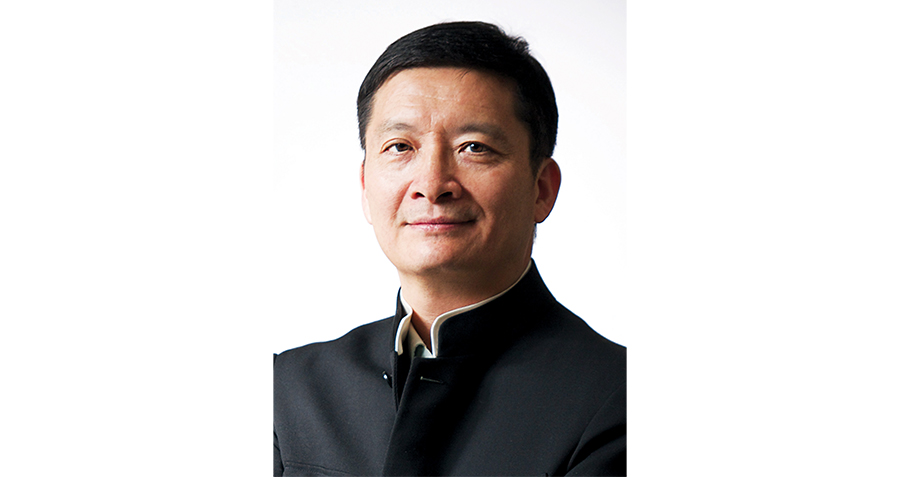A conversation with Junheng Li, author of Tiger Woman on Wall Street
US investors still have little confidence in Chinese companies. That was the conclusion to be drawn from 2012, in which only two Chinese companies—Vipshop, an online retailer, and YY Inc, a social media platform—listed shares in the US. It was the lowest yearly total since 2000, according to data provider Zero2IPO.
Corporate governance problems and the outing of fraud in the past few years continue to dent investor confidence in Chinese companies. And with good reason, says Junheng Li. The gaps in cultural understanding and operational standards between the US and China make it nearly impossible for many American investors to understand precisely what they are investing in.
A Shanghai native who was educated in the US, Li is the founder and head of research at JL Warren Capital, a leading equity research firm. Prior to founding JL Warren, Li worked as a senior equity analyst at hedge fund Aurarian Capital Management. She also authored Tiger Woman on Wall Street: Winning Strategies from Shanghai to New York and Back, which describes her life experiences and unique investment strategy. Li discusses why China has been such a minefield for investment, and how investors and Chinese society should respond.
Q. Your new book discusses the difficulties that US investors have in assessing the reality on the ground in China. What are the main hindrances to investment between China and the US?
A. The obvious obstacles are corporate governance and transparency. The lack of corporate governance in China is a serious challenge for minority investors, which is every US investor. The managers are not looking out for minority investors—they are looking out for themselves and their big shareholders, including local governments and other interest groups.
Q. How do you suggest investors perform due diligence?
A. As a US investor it’s your responsibility “not to trust, but to know”. “To know” means going to warehouses, touching the product with your own hands, and building local contact networks. That’s the only way to avoid getting burned. In China, you just have to overdo the amount of due diligence you would normally do in developed markets. See with your eyes, ask questions, don’t just nod along and sign up for anything management tells you. Not that all managers lie intentionally, but many are naturally positively biased. Just like most parents think their kids are the smartest and cutest, most managers think their business is the winner, although the reality might be different.
Q. What do you suggest if American investors aren’t able to do that?
A. I always say that it’s better not to make money than to lose money. If investors really can’t get access to accurate data and information, then they are better off not investing at all. The problem is, even if you choose not to invest in Chinese companies, often you cannot avoid investing in the Chinese economy. For so many multinationals—Yum! Brands, Apple, BMW, Coach, Swatch, Starbucks, the list goes on and on—much of their business and their growth is coming out of China. So that’s why people hire us [her firm, JL Warren Capital]. You have to have local expertise, local contacts—including contacts among government officials, because China is a very policy-driven economy. That’s the only way to bridge the gap between an investor based in the US and targets thousands of miles away.
Q. What drew you to Wall Street?
A. The honest answer is money and mobility. I didn’t grow up with money—few people from my generation in China did. But I came to understand that money brings convenience and privileges. Not that I want to buy luxury brands, but I wanted the security money brings, such as the ability to raise my children in a less harsh environment than I was raised.
Also, if you don’t mind the toughness of the Wall Street working environment, if you are thick skinned enough to deal with the demanding work hours and expectations, you don’t have to be that brilliant to make a good living. As a comparison, say you want to be a dancer. You have to be one of tens or hundreds of thousands to perform in Lincoln Center. And even if you make it, if you become the principal dancer for the most acclaimed dance company in the world, you are still financially underperforming an investment banking analyst at the age of 23.
For me, I knew that it was a safe bet. I’m very comfortable with numbers, and I don’t mind working hard. You also have to be a bit of an obsessive personality, because you also have to be very attentive to detail. If you are okay working 80, 90 hours per week, then you will end up making a good living.
Q. What advice would you give to women who are interested in Wall Street?
A. On Wall Street, the market grades you first and foremost, not your boss. Investing and trading are results-driven, so they are relatively gender and race agnostic. You are judged by your ability to make money, period. These days, I interview a lot of analysts. I like people who are honest, driven, and hungry, and who possess common sense rather than book smarts. When I interview people, I might as well be blind—I couldn’t care less whether the person is white, yellow, brown, black, or purple, whether they are female or male or anything in between. I don’t care if they show up naked or wearing Prada shoes. But I do need to hear that they are hungry and driven. I want a worker who gets things done.
There are so many books today like Sheryl Sandburg’s Lean In (see page 29), about how female employees have stalled. Maybe that is true for a large corporate environment, but it’s less so for more entrepreneurial sectors on Wall Street.
Q. The title of your book, Tiger Woman on Wall Street, alludes to the fact that you are a product of “tiger parenting”, growing up in Shanghai with a strict father. How did that style of parenting shape you?
A. It was sometimes a painful experience—I have memories of being made to kneel on a washer board for over an hour while learning my multiplication tables, for example, or being terrified when my father literally threw me into the pool to teach me how to swim. But, like I say in my book, my upbringing also gave me discipline, focus, stamina and strength. My father drilled into me the idea that “Where there’s a will, there’s a way.” That gave me the determination and the confidence to succeed. But my American education took that to a new level. It not only gave me confidence as a worker, but confidence as a leader. It encouraged me to think, to challenge the norm and dare to be different, and to lead my own life and my career.
Q. You went to Middlebury College in the US for your undergraduate degree. What was the biggest challenge for you in attending an American college?
A. The language and the cultural aspects are big barriers at first, but you master these eventually. In the end, the biggest challenge was how to make choices and be a problem solver, rather than just memorizing everything. Fundamentally, it was the difference of living in a free society versus living in a command-based society. In China, people look up to the government like kids look up to the parents who take care of them. In Chinese schools, the curriculum is already set for you. In an American private education system, the relationship between students and teachers is more like customers and employees. Tuition is very high, so students demand their money’s worth, and teachers provide services. In China, teachers are the masters of the classroom and the student’s role is to take notes, memorize, and recite things back perfectly. We were not supposed to challenge and be creative. At least that was my experience.
Q. Do you consider that the biggest shortcoming of the Chinese educational system?
A. Yes—you are supposed to be a follower, not a thinker. You are supposed to memorize as opposed to imagine, think, or lead. I’ve seen many Chinese students who are so strategic with their academic career that they end up scoring high and graduating with honors, but they still haven’t experienced that challenge of making choices for themselves. So their ability to think and imagine is still limited.
Q. We’ve talked about the Chinese education and business systems. Is there one aspect that is key to improving both?
It’s by far human capital. Chinese people need to learn to play the game honestly, and that starts with the schools. For the world to trust Chinese companies again after the recent scandals with corporate governance, it’s going to take time and education. I believe that schools are there to teach ethics first and foremost, before compassion, love, comradeship, and so on. Before workers can be productive, they need to be honest. Cutting corners, replacing good material with bad material to make profits, as in what happened with the Chinese milk scandal, it’s not acceptable. It’s not acceptable in China, it’s not acceptable in the rest of the world.

















